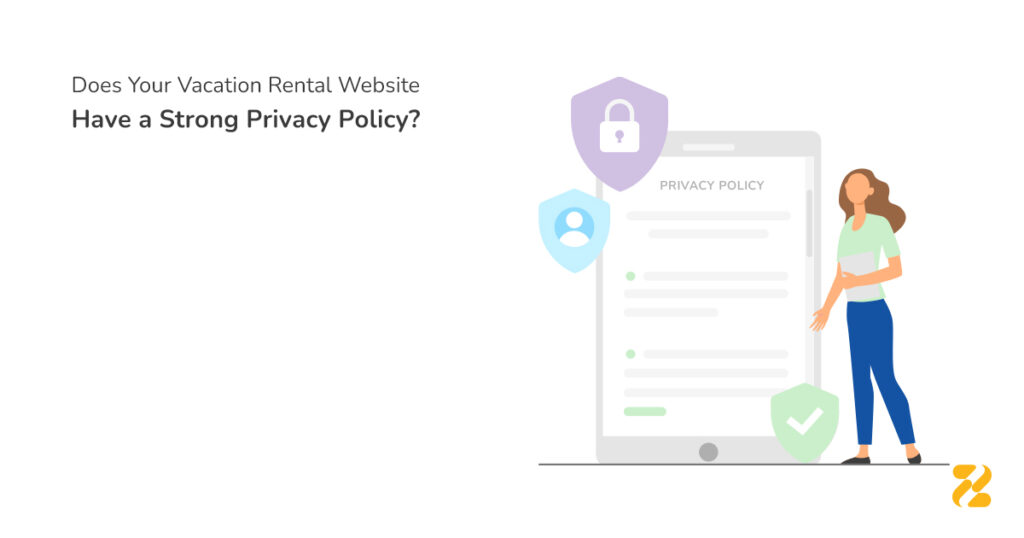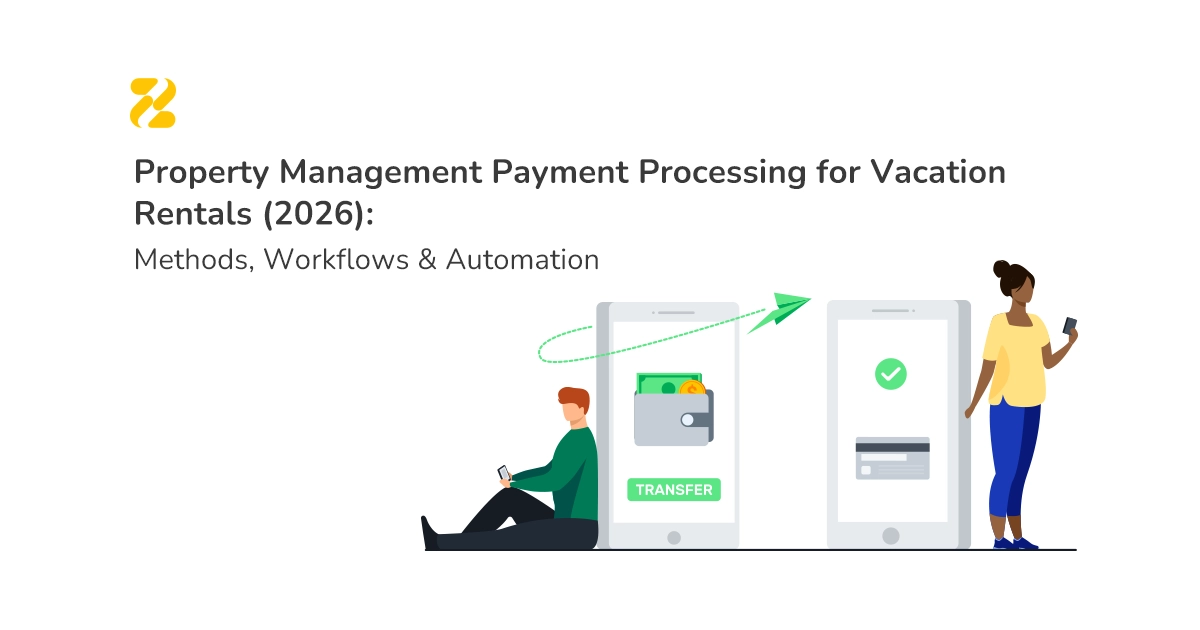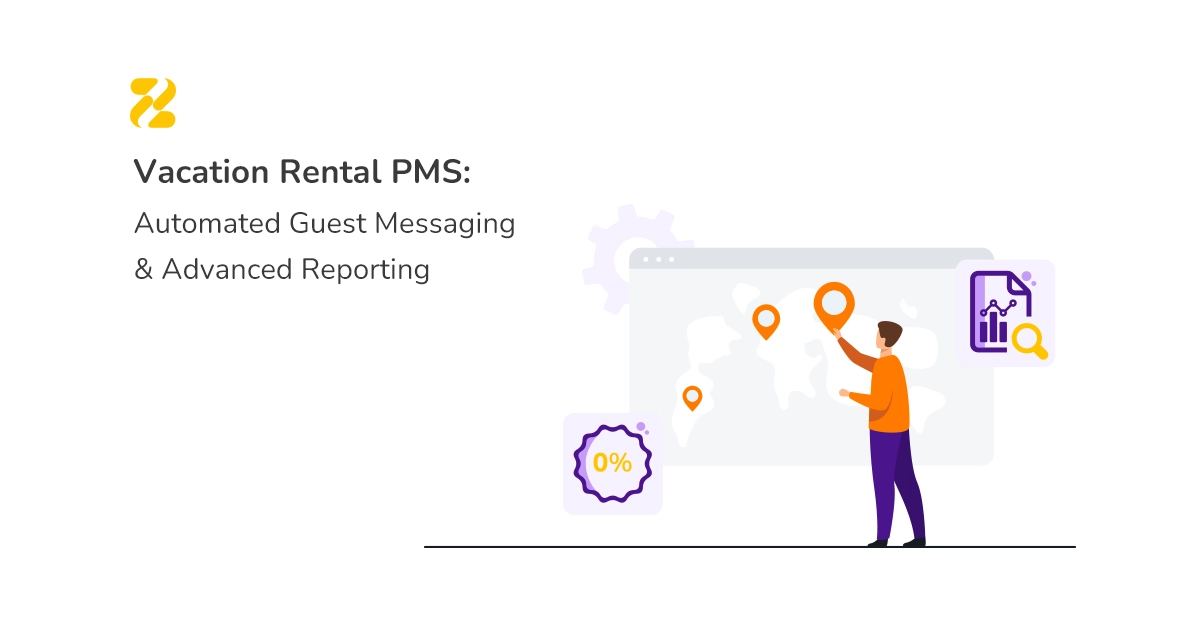In today’s technology-driven landscape, safeguarding privacy has become paramount. If you manage a vacation rental website or short-term rental property, your guests trust you with their personal data, such as names, email addresses, and payment details. But here’s the real question: Is your website privacy policy up to the task?
A clear and transparent vacation rental website privacy policy is more than a legal requirement. It helps build trust, protect your business, and ensure compliance with regulations like the General Data Protection Regulation (GDPR). Let’s explore how you can make your policy work harder for you and your guests.
Table of Contents
Why Is a Privacy Policy Crucial for Your Vacation Rental Website?
Imagine a guest browsing your website, excited to book their next vacation or business trip. They pause before clicking “Book Now,” wondering:
- “Is my information safe?”
- “How will they use my email address?”
A clear privacy policy answers these questions upfront. It shows your guests you’re serious about personal information protection, turning hesitation into trust. Trust is the foundation for repeat bookings and positive guest reviews.
Moreover, there’s additional value to consider. Without a proper privacy policy, your business risks penalties for violating data protection regulations, such as the GDPR. A well-crafted policy keeps you compliant, builds loyalty, and helps your business thrive.

What Should Your Vacation Rental Website Privacy Policy Cover?
Not sure what your policy needs? Here’s what every vacation rental property owner should include to stay ahead:
1. What Personal Data Do You Collect?
Guests want to know what information you’re gathering. Be upfront about collecting:
- Contact information like names and email addresses.
- Payment details for secure transactions.
- Browsing data, such as cookies or IP addresses.
By clarifying what you collect, you build a foundation of transparency.
2. How Are You Collecting Data?
Explain your methods. Are you gathering data through:
- Online booking forms?
- Newsletter sign-ups?
- Cookies tracking user behaviour?
Providing clear, detailed information reassures your guests that your practices are transparent and trustworthy.
3. Why Are You Collecting Personal Information?
Every piece of data you collect serves a purpose. Let your guests know why their information is valuable, such as:
- Sending booking confirmations and updates.
- Improving their experience with personalised offers.
- Keeping them informed about important changes or promotions.
When guests understand the reasons behind your data practices, they’re more inclined to trust how you handle their information.
4. What Legal Grounds Do You Have?
If you’re hosting guests from around the globe, compliance with laws like the GDPR is crucial. Clearly outline your legal basis for processing data, such as:
- Guest consent through opt-ins.
- Fulfilling contracts (e.g., processing a booking).
This transparency reassures guests that their data is handled responsibly.

5. Do You Share Data with Third Parties?
If you work with property management companies, payment gateways, or marketing platforms, let guests know. For example:
- “We share your payment information with secure third-party processors to complete transactions.”
Make it clear that these partnerships prioritise data protection regulations.
6. How Long Do You Keep Personal Data?
No one wants their sensitive personal information lingering forever. Specify:
- How long you retain data.
- The reasons behind your retention policies.
For example: “We keep booking data for tax compliance purposes and delete it after three years.”
7. How Secure Is the Data?
Your guests want peace of mind. Highlight the steps you take to prevent data breaches, such as:
- Encryption for payment details.
- Firewalls and regular security audits.
- Restricting access to authorised personnel only.
Guests will appreciate knowing their information is in safe hands.
8. What Are Guests’ Rights?
Empower your guests by outlining their rights:
- Accessing their information.
- Requesting corrections.
- Opting out of marketing communications.
Providing clear instructions for these actions makes your guests feel in control.
9. How Can Guests Contact You?
Make it easy for guests to reach out with concerns. Include:
- Your email address.
- A phone number.
- A physical address for correspondence.
Accessible contact details show you’re approachable and ready to help.

Best Practices for Your Vacation Rental Website Privacy Policy
Creating a privacy policy might feel daunting, but keeping these tips in mind can make all the difference:
- Use clear, friendly language – skip the legal jargon.
- Display your policy prominently on your website, such as in the footer or during the booking process.
- Require guests to accept the policy before sharing Personally Identifiable Information (PII).
- Review and update your policy regularly to stay aligned with the latest data protection regulations.
Turn Privacy Compliance into a Competitive Advantage
Your vacation rental website privacy policy isn’t just about staying compliant – it’s an opportunity to stand out in a competitive market. Guests notice when businesses prioritise transparency and security. By protecting their data, you’re showing them that their trust matters.
How Zeevou Helps You Stay Compliant
At Zeevou, we know the challenges vacation rental property owners face in today’s fast-paced world. That’s why we offer:
- Customisable privacy policy templates tailored to your short-term rental business.
- GDPR-compliant tools to collect real guest email addresses for marketing and loyalty campaigns.
- Secure systems to safeguard your guests’ sensitive data every step of the way.
With Zeevou, you’re not just meeting legal requirements – you’re building trust and long-term relationships with your guests.

Protect Your Guests and Your Business
A robust vacation rental website privacy policy is vital for protecting sensitive personal information and ensuring compliance with global data protection regulations. Whether you’re attracting leisure guests or business travellers, transparency and security are non-negotiable.
Take the first step today by downloading Zeevou’s free privacy policy template. Protect your guests’ Personally Identifiable Information (PII) and safeguard your business from potential risks.
Image by pch.vector on Freepik.




